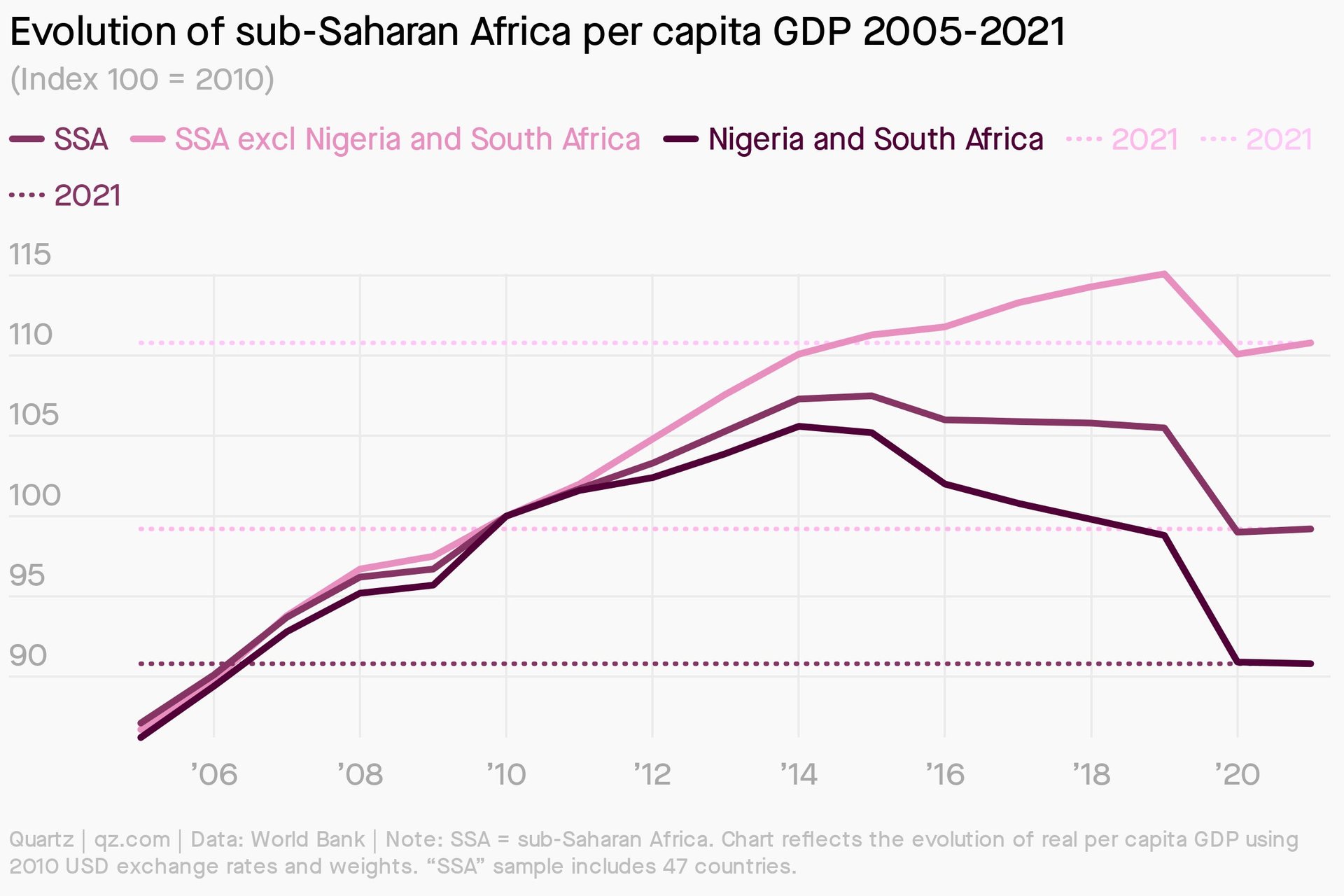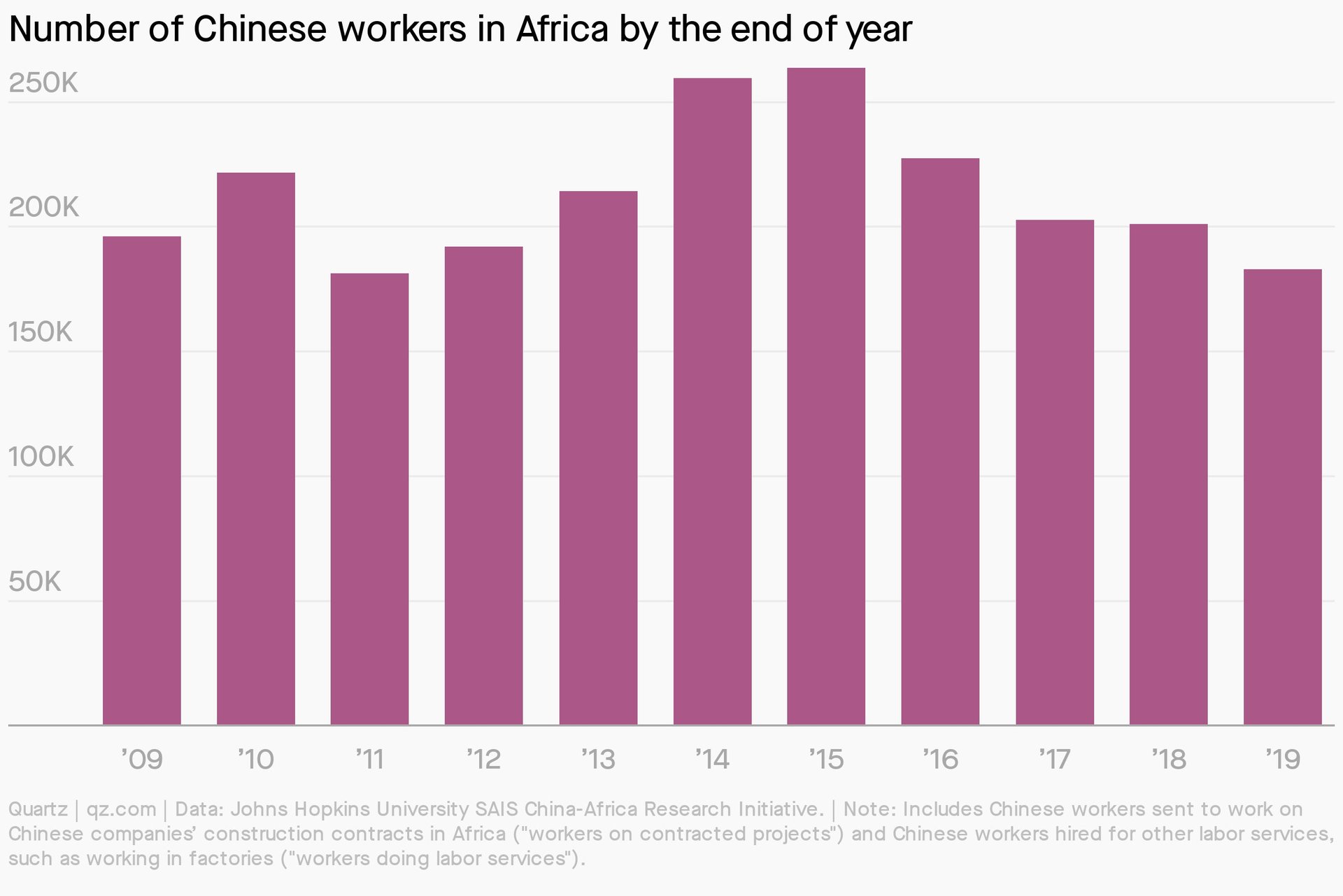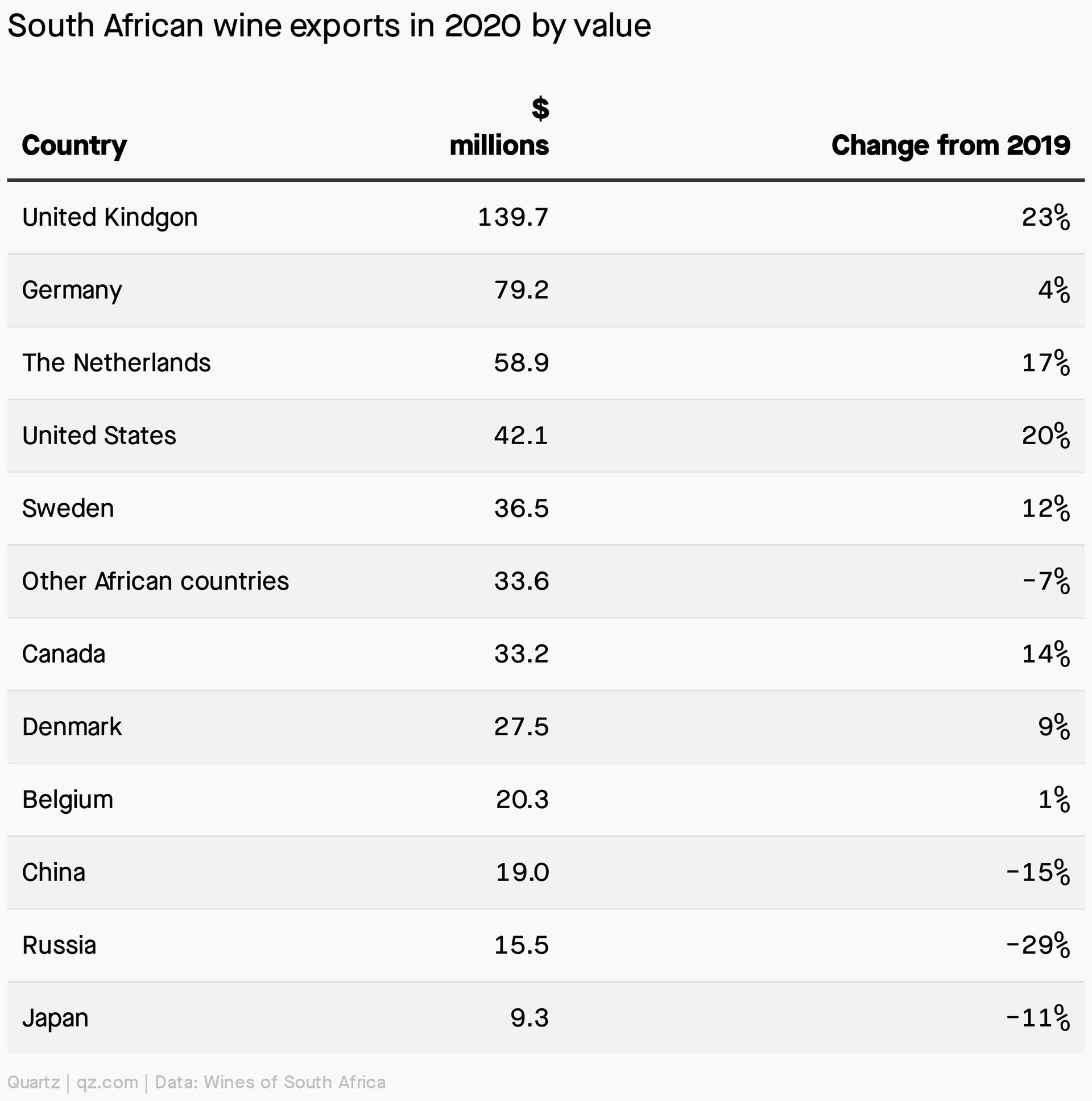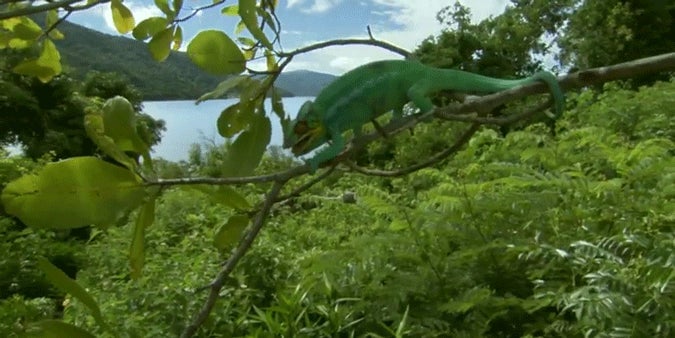Africa’s economy in 2021, Chinese migrant workers, Nigerians like Biden
Hi, Quartz Africa readers!


Hi, Quartz Africa readers!
Africa in 2021
Sub-Saharan Africa will see moderate but positive growth of 2.7% this year, a welcome rebound from the region’s first recession of 25 years in 2020 when the region shrank by an estimated -3.7%. But 2021 is probably going to be just as tough for African economies as it was in 2020.
Last year, there was a 6.1% decline in per capita income in the region, the “deepest contraction on record,” says the World Bank in its latest global outlook. There’ll be a further 0.2% decline this year.
Like many observers, the bank is worried that despite the commendable early efforts of African governments to lock down their economies from Covid-19 the pandemic has not really let off. Several countries are going through a second wave that is more severe than the first.
These persistent outbreaks and the uncertainty they create will inhibit economic growth and ultimately set living standards back by a decade, says the bank, reiterating its early pandemic warnings.

One of the many reasons, African economies have struggled has been the unprecedented capital outflows needed to help manage their economic lockdowns even as foreign direct investment all but disappeared. In 2020, FDI to Africa collapsed by 30%-40% and remittances fell by 9% leaving little room to maneuver for African finance ministers.
This is likely why despite ongoing concerns about mounting debt levels, government debt in the region jumped another 8 percentage points to around 70% of GDP, says the IMF. The fear now is that rising interest payment obligations will see some countries sacrifice their developmental targets like health and education.
If you’re looking for a few positives, there’s the fact export growth is expected to accelerate this year in line with the rebound in economic activity among major trading partners like the US and China. But that growth won’t be especially strong for oil producers and other extractive-reliant economies. The region’s largest economies, Nigeria and South Africa will have more tepid recoveries, overweighting sub-Saharan Africa’s average growth rate downwards.
But more diversified economies including Kenya, Côte d’Ivoire and Tanzania will recover better, all things considered. In general, economic recovery is expected to be slightly stronger among agricultural commodity exporters , averaging 4.5% in 2021-22.
These forecasts are made on the expectation FDI picks up as uncertainty eases and progress is made toward the full implementation of the African Continental Free Trade Area agreement (AfCFTA) alongside other economic and business reforms being tracked across the continent.

Moving on
The Africa Weekly Brief is changing hands going forward. It’s been a pleasure and an honor working on this every week for the last five years, seeing our readership grow, and receiving so much genuine feedback from so many of you. Thank you for reading. The Brief takes a break next week and returns on Feb. 14.
— Yinka Adegoke, Quartz Africa editor
Stories this week
South Africa’s Covid variant forces a vaccine rethink. More countries are banning travel from South Africa because of the aggressive Covid-19 variant which has taken root in the country. Now Moderna is doubling its efforts with two vaccine boosters to see if it that will work better, learns Uwagbale Edward-Ekpu.
Two foreign billionaires and Africa’s weak governance of its extractive sectors. Two separate cases of Israeli mining billionaires in Guinea and DR Congo respectively, show how weak governance and 0-poor operational systems across Africa are easily exploited by foreign interlopers often in partnership with government insiders, writes Tawanda Karombo.
How many Chinese workers are there in Africa now? The total number of official Chinese workers has been dropping since 2016, and that decline coincides with the slump in commodities prices over the same period, reports Abubakar Idris. But the official numbers are rising in certain countries noted in the data.

How former president Rawlings pioneered heritage tourism in Ghana. In this interview with Rachel Ama Asaa Engmann, a couple of years before his death late last year, Ghana’s former president Jerry Rawlings, explains the roots of the Panafest festival and the continent’s links with the global African diaspora.

Nigerians are pleased Biden is reversing Trump’s visa ban, but it’s only a first step. There was some relief in Nigeria when president Joe Biden reversed the Trump administration’s expanded “Muslim ban” which prevented Nigerians from applying for immigrant visas. But as Tolu Olasoji learns it’ll take more untangling to undo some of the Trump-era visa restrictions for Nigerians.
Chart of the Week
South African wine sales are booming nearly everywhere but South Africa. In order to help manage multiple challenges for health authorities, the South African government banned or restricted alcohol sales for most of last year creating unsold surplus at home. But sales are booming in key countries around the world, finds Brian Browdie.

Dealmaker
A Kenyan insurtech startup for de-risking farmers is expanding to Asia. Kenyan-based insurtech startup, Pula, which offers small scale farmers agricultural insurance, is expanding to Asia after raising $6 million, reports Socrates Mbamalu. The Series A round was led by TLcom Capital, with nonprofit Women’s World Banking participating.
Cowryrise, the Nigerian wealth management platform startup, raised $3 million pre-Series A funding with Quona Capital leading the funding round, joined by Gumroad founder Sahil Lavingia, Tsadik Foundation, and a syndicate of Nigerian angels.
Odiggo, an Egyptian digital automotive marketplace, has raised $600,000 in a seed funding round from Essa Al-Saleh, an angel investor and chairman of UK-based electric vehicle manufacturer Volta Trucks.
Quartz gems: How to work from home
Our living spaces can affect our moods, our psychological well being, and our work performance. We know this intuitively because we’ve experienced it. Maybe you work more creatively in a coffee shop than in a silent room, or favor a particularly sunny desk in the library, even if you couldn’t explain why. Now that we’re all home a lot more than we used to be, we’re paying attention to how we can better make our space work for us.

Our latest field guide explores the science-backed ways to make our home and gardens into the warm, relaxed, and productive places we all want them to be, especially when so much of the world seems like it’s anything but.
Other things we liked
Why Bobi Wine’s challenge was different for Uganda’s Museveni in 2021. When Uganda’s president Yoweri Museveni was declared winner of the Jan. 14 elections, ordinary Ugandans did not come out in the street to celebrate, notes Eriasa Sserunjogi in The Elephant. The emergence of Bobi Wine as Museveni’s main challenger “excited many and ignited hitherto apolitical constituencies to rise up against Museveni.”
The Swiss lawyer and the hunt for Sani Abacha’s Nigerian loot. For BBC, Clare Spencer chronicles how a call in 1999 changed the course of a Swiss lawyer’s life for the next 20 years as he went on the hunt for the stolen billions of former Nigerian military ruler Sani Abacha.
Kenya is gaining its wilderness back through an ecologist’s effort—on TV. Poachers, cattle-herders, climate change, and an exploding human population all have a deteriorating impact on Kenya’s wildlife. The New Yorker’s Jon Lee Anderson writes about how Paula Kahumbu, a Kenyan conservationist, became a TV star to save her country’s wildlife.
On white privilege in African studies.“African Studies as a discipline is not the problem, African Studies as an ideology is the problem,” writes Mukoma wa Ngũgĩ in Brittle Paper. This article explores what the writer sees as an inherent, overbearing, and regurgitative pattern of solving racism when the African continent is being discussed or studied by white academics.
*This brief was produced while listening to Shuffering and Shmiling by Fela Anikulapo-Kuti (Nigeria).
Our best wishes for a productive and ideas-filled week ahead. Please send any news, comments, suggestions, ideas, special booster Covid vaccines (actually, we’ll take any), and unsold surplus South African wine to [email protected]. You can follow us on Twitter at @qzafrica for updates throughout the day.
If you received this email from a friend or colleague, you can sign up here to receive the Quartz Africa Weekly Brief in your inbox every week. You can also follow Quartz Africa on Facebook.